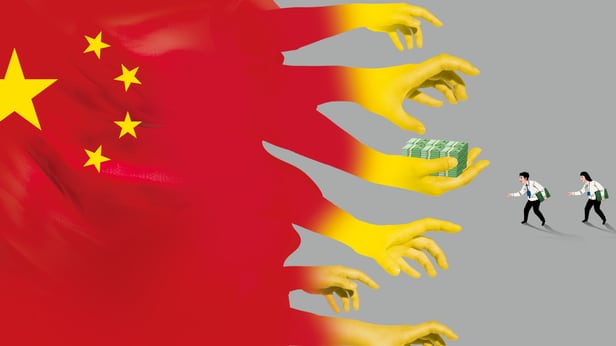‘한국’의 추월을 아파했던 일본이 맹렬 정신 실종, 기술 유출 이유로 이제 한국 경제를 걱정한다. 우리는 어떤 대책을 고민 중인가
Japan, which used to feel pain at being overtaken by 'South Korea', now worries about the South Korean economy, citing fierce mental disappearances and technology leaks. What are we doing about it?
이인열 기자
입력 2024.04.04. 03:00
업데이트 2024.04.04. 05:54
“1984년부터 1986년까지 정말 힘들었다. 돈은 안 벌어지고, 개발도 뜻대로 안 됐다. 회의는 날마다 밤 11시에 했다. 사장과 전무도 참여했다. 당시 기흥은 정말 시골이었다. 너무 늦게 끝나니 매일 밤 회사에서 차량을 준비해줬다. 꼭 버스 2대에 나눠 탔다. 혹시 교통사고가 나면 한꺼번에 우리의 꿈이 사라질 수 있다는 절박감 때문이었다.”
이인열 기자
입력 2024.04.04. 03:00
업데이트 2024.04.04. 05:54
“1984년부터 1986년까지 정말 힘들었다. 돈은 안 벌어지고, 개발도 뜻대로 안 됐다. 회의는 날마다 밤 11시에 했다. 사장과 전무도 참여했다. 당시 기흥은 정말 시골이었다. 너무 늦게 끝나니 매일 밤 회사에서 차량을 준비해줬다. 꼭 버스 2대에 나눠 탔다. 혹시 교통사고가 나면 한꺼번에 우리의 꿈이 사라질 수 있다는 절박감 때문이었다.”
"From 1984 to 1986, it was really hard. We weren't making any money, and development wasn't going well. We had meetings at 11pm every night. Even the president and managing director were involved. At that time, Kiehung was very rural. Because we finished so late, the company organised a car for us every night, and we had to share two buses, out of desperation that if we got into a car accident, our dreams would disappear all at once."
2004년 11월에 작성한 기자의 취재 수첩에 적힌 한 대목이다. 취재원은 당시 삼성전자 차세대연구팀장 김기남 전무. 훗날 삼성전자 대표이사 부회장에 올랐다.
2004년 11월에 작성한 기자의 취재 수첩에 적힌 한 대목이다. 취재원은 당시 삼성전자 차세대연구팀장 김기남 전무. 훗날 삼성전자 대표이사 부회장에 올랐다.
This is a quote from a reporter's notebook from November 2004. The source was Kim Ki-nam, then the head of Samsung Electronics' next-generation research team. He later became vice chairman of Samsung Electronics.
“삼성이 왜 잘하느냐”는 질문에 그는 ‘회의 문화’를 꼽았다. “전무부터 대리까지 누구든 서슴지 않고 반박을 한다. 이런 문화는 처음부터 우리가 생판 모르는 것(반도체 사업)을 하면서 생겨난 것이다. 모르는 것을 가장 빨리 하려면 가장 잘하는 사람, 가장 정확히 아는 사람이 중요하다는 것을 체득한 것이다”라고 말했다.
“삼성이 왜 잘하느냐”는 질문에 그는 ‘회의 문화’를 꼽았다. “전무부터 대리까지 누구든 서슴지 않고 반박을 한다. 이런 문화는 처음부터 우리가 생판 모르는 것(반도체 사업)을 하면서 생겨난 것이다. 모르는 것을 가장 빨리 하려면 가장 잘하는 사람, 가장 정확히 아는 사람이 중요하다는 것을 체득한 것이다”라고 말했다.
When asked "why Samsung does well," he cites a culture of skepticism. "Everyone, from the executive director to the vice president, doesn't hesitate to speak up. This culture was born from the beginning when we were doing something we didn't know (the semiconductor business). We learnt that the best people, the ones who know the most, are the ones who know the most accurately, in order to do what we don't know the fastest."
The reason I pulled out my 20-year-old research notebook was a two-part feature in the Nikkei late last month on Samsung and the Korean economy. It worried that Japan, the country that would have felt the most pain from Samsung's overtaking, was suffering from "conglomerate disease". "South Korea's Samsung Electronics has become an electronics giant thanks to its chief executive's determination and fierce organisation, but Apple of the United States and Taiwan's TSMC are catching up. Profits have been falling and business renewal has been stalled at the company built by its founding chairman, Lee Kun-hee. Chairman Lee Jae-yong took over," it says.
He cited the fact that the company recently fell behind in high-bandwidth memory (HBM) production and lost the world's top spot in smartphones to Apple after 13 years. "For a decade, Samsung's sales and operating profit have been virtually flat, while Japan's Sony Group and Hitachi Corporation have restructured their businesses and improved profitability, boosting their stock prices more than tenfold since the US financial crisis," he boasted.
But the real crux of the Nikkei article points to a problem in the Korean economy that goes beyond Samsung. In the five years leading up to 2023, there were 96 technology leaks from South Korea's semiconductors, batteries, OLEDs, shipbuilding, and more to foreign countries. Most of the leaks were to China, and this was the tip of the iceberg. He said that more than 100 Koreans work for China's BOE, the world's No. 1 maker of liquid crystal panels, as many technicians who lose out on promotions go to China.
In South Korea's key industries of display, shipbuilding, petrochemicals, batteries, and steel, the world leaders are all Chinese companies, and there is no point in fighting on the same stage as Chinese manufacturing.
He pointed to the disappearance of a "culture of fierceness" in South Korea. The "52-hour workweek," which was legislated under the Moon Jae-in administration, which is largely supported by unions, has drastically changed attitudes towards work and the way people work, he said. "Younger employees who want to work have to be encouraged to leave work, and a sense of 'selling time to the company' has taken root among employees who are used to leaving work on time," laments a large company executive.
South Korea's economy has already entered a period of slowdown as its export-led chaebols have become less competitive. Moreover, how can South Korea remain competitive with a domestic market of only 50 million people, with a declining birthrate and aging population that is worse than Japan's?
We already know this, but sometimes it takes an outside perspective to spur us on. The voice of worry is both an opportunity to overcome and a realization of decline. But what about our society right now? The despair we feel during the general election, with its rhetoric of revenge and hate, is not only due to the logic of extreme parties.
translated by DeepL

